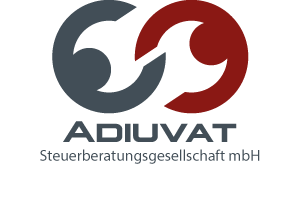In the case of the sale of a share in a corporation (e.g. GmbH) held as private assets, the gain is only taxable at the rate of 60% if the shareholding has been at least 1% within the last five years (Section 17 EStG). Accordingly, capital losses (even in the event of dissolution of the company) can be offset at 60% against other positive income.
Dieser Beitrag ist auch verfügbar auf:
In the case of other capital assets, on the other hand, capital gains and losses are fully taxable (Sec. 20 (2) EStG); losses – e.g., in the event of default on a loan – can, however, only be offset against other positive income from capital assets. In particular in the case of insolvency of a GmbH, it is therefore significant for tax purposes whether the loss of a loan to the “own” GmbH is to be assessed as a loss from capital assets – which can only be offset to a limited extent – or whether the lost shareholder loan is regarded as subsequent acquisition costs of the participation and would thus increase the dissolution loss of the GmbH participation; although this would only be taken into account at 60%, it could be offset against other positive income.
Following three rulings by the Federal Fiscal Court
the tax authorities have now adjusted their view. Accordingly, the loss of a loan by the shareholder, e.g. due to the insolvency of the GmbH, does not in principle lead to subsequent acquisition costs of the investment. The loan loss would therefore be regarded as income-related expenses in the case of investment income and could only be offset against other positive income from investment assets.
However, for a transitional period, the tax authorities apply a special rule. In the case of loans previously considered equity-substituting that were granted on or before September 27, 2017, a loan loss may also be treated as a subsequent acquisition cost of the investment.
In addition, subsequent acquisition costs only exist for expenses that are open or hidden contributions under commercial and balance sheet tax law. These include, for example, additional contributions (Sec. 26 et seq. GmbHG), payments into a capital reserve, cash contributions or the waiver of a receivable that is still of value.
(For further comments, information and examples, please refer to our information letter 06/2019).
A) Newsletter order
Always be well informed, do not miss any news! With our newsletter service you will always receive current information about our office and this conveniently by e-mail (e.g. changed opening hours, etc.). Of course, you can easily unsubscribe from the newsletter at any time. At the end of each newsletter you will find a corresponding unsubscribe link. To do this, simply enter your e-mail address…
B) Subscribe to information letter
[/vc_message][ultimate_spacer height=”50″]Neumann & Walczak – tax consulting company GmbH – Robert-Bosch-Strasse 1 – 59439 Holzwickede
Neumann Walczak & Partner Tax Consultant and Lawyer – Partnership –
Robert-Bosch-Strasse 1 – 59439 Holzwickede
Website: www.neumann-walczak.de – E-mail: info@neumann-walczak.de
Phone: (0049) 02301 – 91 291 0 – Fax: (0049) 02301 – 91 291 21
